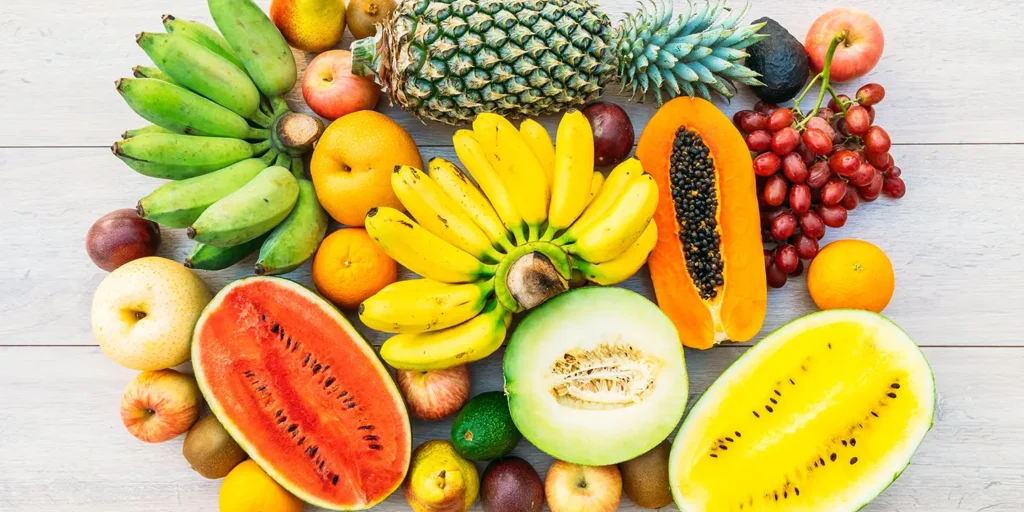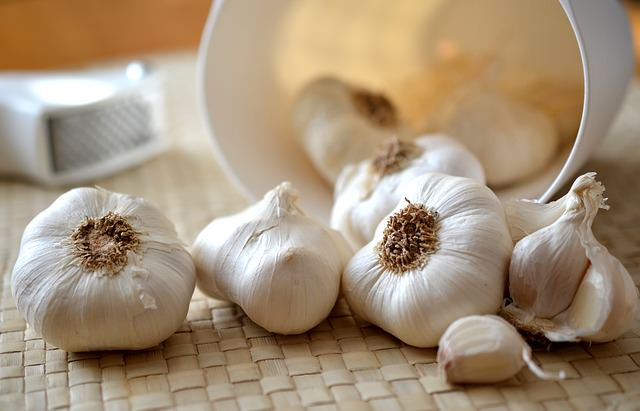In-season produce can be more nutritious than off-season produce. Some fruits and vegetables in season during summer include bananas, mangoes, peaches, eggplant, carrots, and corn.
Eating in season is the practice of eating fruits and vegetables that can be grown during the season you’re in.
While various fruits and vegetables may be available in your local grocery store, that doesn’t mean they’re all equally nutritious. Once produce is harvested, its nutritional quality can decrease over time — water-soluble vitamins such as vitamin C and B vitamins are particularly susceptible.
So, it’s best to eat foods that have been harvested recently. Here are foods that are considered in-season for summer, as well as recipes you can make with them.
Seasonal fruit
A variety of fruits are in season during the summer months, all with their own health benefits. Sweet summer fruits include:
Apples: Consuming apples can improve cholesterol levels.
Apricots: Apricots have antioxidant activity and reduce inflammation, among other benefits.
Bananas: Bananas are rich in vitamins B3, B6, B12, C and E. They also have high antioxidant activity.
Blackberries: Blackberries are high in polyphenols, which can boost immunity and reduce fatigue.
Blueberries: Blueberries have an anti-diabetic effect and can protect against cardiovascular disease.
Cantaloupe: Cantaloupe is high in carotenoids, which can protect against cardiovascular disease and cancer.
Cherries: Cherries can protect against diabetes, cancer, and other inflammatory diseases.
Honeydew: Honeydew has beta-carotene, which can protect against certain cancers and promote skin health.
Lemons: Lemons contain flavonoids and carotenoids and have antioxidant properties.
Limes: Like lemons, limes are high in vitamin C and can reduce oxidative stress.
Mangoes: Mangoes are rich in soluble fiber, vitamins, minerals, and antioxidants, and can help protect your liver.
Peaches: Peaches have antioxidant, antimicrobial, and anti-inflammatory properties.
Plums: Plums are high in a compound called anthocyanin, which can help combat oxidative stress.
Raspberries: The compounds in raspberries can help protect against obesity and certain cancers.
Strawberries: One 2020 study found that consuming strawberries increased gut microorganisms related to lean bodyweight and longevity after 4 weeks of consumption.
Watermelon: Watermelon has antioxidant, anti-inflammatory, and anti-diabetic effects. Consuming watermelon can also help protect your liver.
There are also some seasonal fruits that are treated more like vegetables when cooking. They may be used to create savory dishes. These include:
Avocados: Consuming avocados is associated withTrusted Source a decrease in LDL (bad) cholesterol.
Bell peppers: Bell peppers are rich in flavonoids and polyphenols, and they have anti-inflammatory properties.
Cucumbers: Since they’re mostly water, cucumbers are low in calories and hydrating.
Eggplant.: Eggplants are high in antioxidants.
Summer squash: Summer squash can protect against diabetes, cardiovascular diseases, and some cancers.
Tomatillos: Tomatillos are high in potassium and have antimicrobial properties.
Tomatoes: Tomatoes have antioxidant, anti-inflammatory, and anticancer properties.
Plantains: Plantains may help manage blood glucose in individuals with type 2 diabetes.
Zucchini: Zucchini has antioxidant and anti-inflammatory properties.
Seasonal vegetables
Though not as numerous as fruits, there are still a handful of vegetables in season. They include:
Beets: Beets have antioxidant and anti-inflammatory properties.
Carrots: Carrots contain carotenoids and polyphenols, which have anticarcinogenic, antioxidant, and immune-boosting properties.
Celery: Celery contains important nutrientsTrusted Source such as vitamin C, beta-carotene, and manganese.
Corn: The dietary fiber in corn may support weight management and gut health.
Green beans: Green beans have anti-inflammatory and antioxidant properties.
Lima beans: Legumes like lima beans can help manage blood sugar in individuals with type 2 diabetes.
Okra: Okra has antioxidant, anti-inflammatory, hypoglycemic, and hypolipidemic properties.
Takeaway
Fruits and vegetables that are in season may yield more nutrients than those that are not. There are many fruits and vegetables in season during the summer, such as apples, berries, avocados, cucumbers, and tomatoes.
Salads, wraps, and refreshing drinks can be ideal dishes for summer. If none of the recipes above look appetizing, you can try substituting ingredients with other in-season produce to find out what works for you.














